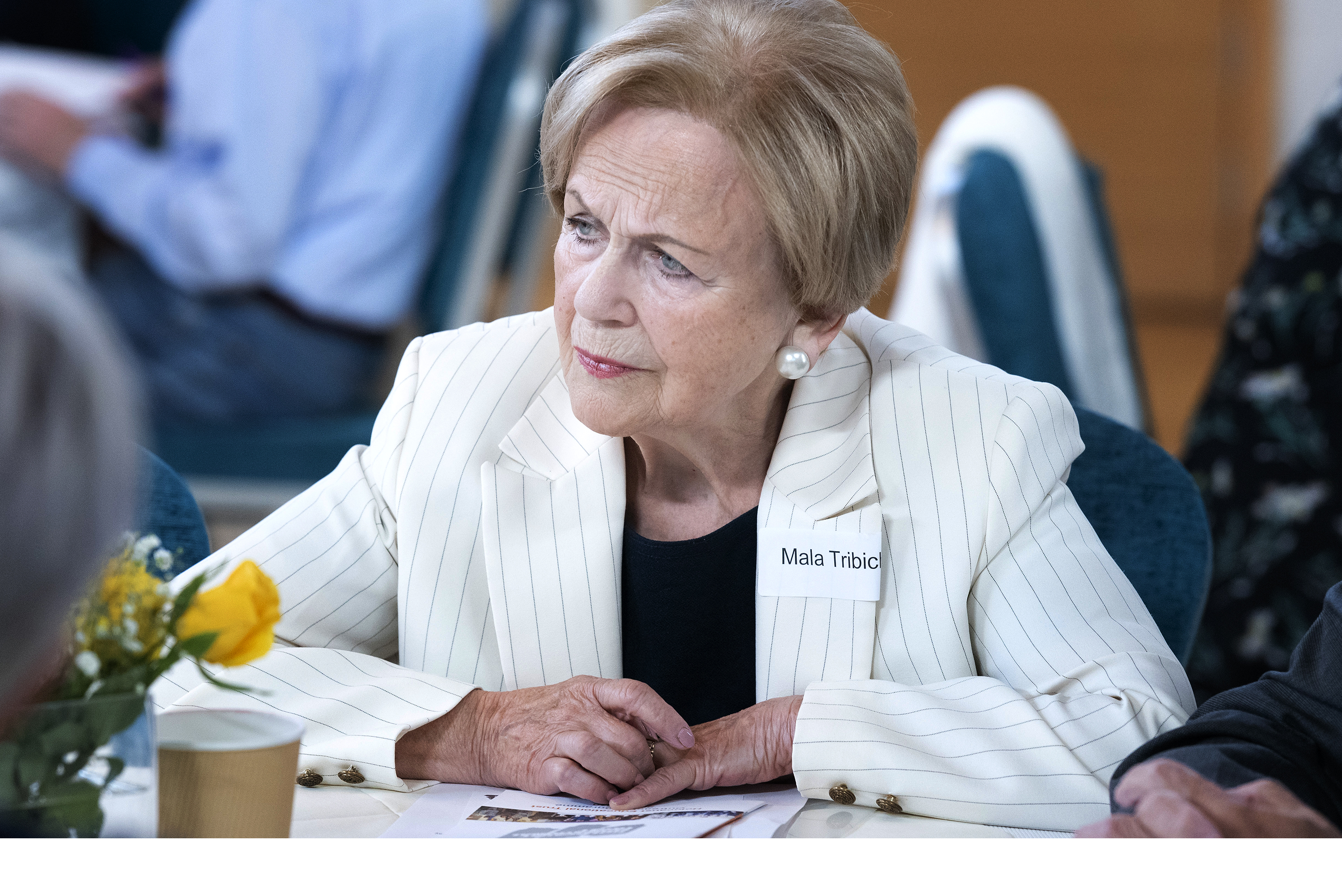The Independent's journalism is supported by our readers. When you purchase through links on our site, we may earn commission.
Eighty years on, I still find it hard to believe that the Holocaust happened to us
Mala Tribich, who is attending the Holocaust Memorial Day service at Auschwitz-Birkenau alongside the King and Queen, was one of only two members of her family to survive the Nazi persecution of Jewish people. Here she writes of her pride in representing the six million people who were killed


Today, I am going to be at Auschwitz-Birkenau, 80 years after its gates were opened and the world learnt what was happening to us, the Jews of Europe.
I will stand at that place where a million people were murdered. People like me, like my family.
I will be standing with other survivors – many of whom were imprisoned in that ghastly place.
It is a day of mixed emotions. When I was liberated from Bergen-Belsen – a few months after Auschwitz was liberated – I could never have imagined a day like today. During the Holocaust, we barely dared to dream that we would survive another day, let alone imagine that one day we would live in freedom.
Although I was not imprisoned in Auschwitz, it is the place that most people think of when they think of the Holocaust. And being in the camp today, standing by the barbed-wire fences underneath the watchtowers, reminds me of what happened to my family.
Some days I still find it hard to believe that all of it happened to us.
My family and I were taken to the first ghetto the Nazis created, in my hometown of Piotrkow Trybunalski in central Poland. My family knew how dangerous it was in the ghetto, and I was sent into hiding on the outside of the ghetto walls. I was with my little cousin Idzia. Eventually, I was sent back to the ghetto – but Idzia never returned. She was never seen again.
The ghetto was awful. We never had enough food and it was cramped and dirty.
In 1942 my mother and my little sister Lucia were taken from the ghetto to the Rakow Forest, along with many others from my hometown, and they were shot.

It was just me, my father, and my brother Ben left. In November 1944 the ghetto was liquidated, and my father and Ben were sent to Buchenwald. I was sent with my younger cousin Ann to Ravensbrück concentration camp. I was only 14 years old myself and the only person to look after Ann.
Ten weeks later, we were transported by cattle trucks to Bergen-Belsen. A place impossible to describe. I have never and will never find the right words to convey this place, full of death and disease.
When the British army liberated us in April 1945, I was so weak with typhus that I barely even knew that I was free.
Eighty years later, marking Holocaust Memorial Day at Auschwitz and standing shoulder to shoulder with survivors of Nazi camps and ghettos from across Europe during those unimaginable years is something that I could never have imagined.
On this milestone anniversary, the world will remember the million Jewish people murdered at Auschwitz, the six million Jewish people murdered in the Holocaust. I will reflect on all of those in whose name I share my testimony week in and week out.
But as always on days like today, I remember my sister Lucia, my mother Sara, and my father Moishe. I remember them as they lived, and I remember what happened to them.
I think of my brother Ben. He was the strongest person I knew – emotionally and physically. After the war, he went on to be a champion weightlifter, representing the UK in the Olympics. He was so many things to so many people – an athlete, a leader, a survivor. But to me, he was just my big brother. Ben passed away in 2023 and he is missed more than ever on days like today.
I am proud to be at the International Commemoration, representing British Holocaust survivors. I am proud to represent the survivors who are not physically able to be here. I am proud to represent the survivors, like my beloved brother Ben, who are no longer with us. And I am honoured to represent my mother, my father, my sister, and the six million Jewish people whose voices were silenced but whose memory lives on in moments like today’s.
Mala Tribich works with the Holocaust Educational Trust to share her testimony
Join our commenting forum
Join thought-provoking conversations, follow other Independent readers and see their replies
Comments
Bookmark popover
Removed from bookmarks